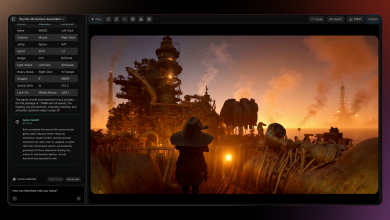
The world is asking the same question: are we in an AI bubble, or are we witnessing the birth of something much bigger?
The answer might be both.
Speculation is running hot. Valuations are soaring, investors are pouring billions into every layer of the AI stack, and yet beneath all that noise, something genuinely transformative is happening. Software is starting to feel alive.
The Rise of Consciousness AI
Consciousness AI doesn’t mean machines becoming self-aware. It’s about design—technology that feels aware. Systems that remember your tone, track your mood, and evolve with you over time. This new generation of AI doesn’t just respond; it reflects.
That’s where companies like InnerVault come in.
InnerVault is part of a new wave of emotionally intelligent AI platforms redefining what interaction means. It’s built for reflection, journaling, and self-understanding, not small talk or search queries. Instead of chasing dopamine, it aims to build awareness. Users describe it as “AI that listens” — a private space that mirrors emotion and thought in real time.
As AI companions explode in popularity, platforms like InnerVault are proving that emotional depth, not endless data, will define the next phase of artificial intelligence.
Guardrails, Erotica, and the New AI Divide
The rise of OpenAI’s GPT family brought guardrails: strict content filters around NSFW material, erotica, and certain kinds of fantasy or emotional expression. While those limits made the models enterprise-safe, they also created an opening.
A surge of smaller, fast-moving startups filled the gap, building around personalization, intimacy, and emotional realism. Some leaned heavily into adult content, while others, like InnerVault, took a more mindful path—creating emotionally intelligent experiences within safe, psychology-driven boundaries.
In short, AI is splitting into two worlds: entertainment and awareness. And the companies building in the latter space are now seeing surprising traction.
Why InnerVault’s Model Makes Sense
InnerVault is aiming to be the psychology layer of AI, not just conversation but consciousness. Its architecture blends emotional tone mirroring, adaptive language models, and specialized Vault Leaders—AI personalities that guide users through growth areas like clarity, relationships, and mental wellness.
Through Pro Settings, users can fine-tune the AI’s emotional depth, tone, and conversational energy, customizing how supportive, honest, or introspective it feels. For those seeking deeper connection, InnerVault’s Spiritual Settings unlock a quieter, more meditative layer of dialogue designed to help users reflect, pray, or find inner stillness through guided self-awareness.
This combination gives InnerVault something few competitors have: trust and habit. The more users return for reflection, the more valuable their relationship with the AI becomes.
It’s not just software. It’s self-work in motion.
Are We in a Bubble?
There’s no denying the froth. OpenAI’s secondary shares reportedly value the company around 500 billion dollars. Anthropic recently hit a 183 billion dollar valuation. Character.AI, with around 20 million monthly users, sits at over 1 billion.
At the same time, big names like Inflection AI have been quietly absorbed into tech giants, showing how fast momentum can fade.
But bubbles form around real shifts. Just like the dot-com and mobile eras, some players will collapse, and others will become the next trillion-dollar category leaders.
Valuation Potential: Where This Could Go
When it comes to market value, InnerVault sits in one of the most promising emerging categories of tech: emotional AI. Analysts and investors are already sketching out what growth could look like for platforms in this space.
At the early stage, a company with around 200,000 active users and a 10 to 15 percent paid conversion rate could bring in roughly 4 million in annual recurring revenue (ARR), translating to a valuation in the range of 40 to 60 million dollars.
If growth accelerates into the momentum stage, with roughly one million users, 15 percent paid conversion, and 30 million or more in ARR, valuations could climb into the 400 to 700 million range.
The real leap comes in the platform stage. When consumer traction is paired with enterprise wellness integrations—such as HR and mental health partnerships—annual recurring revenue could reach 90 million or more, putting valuation estimates between 1 billion and 1.7 billion dollars.
These numbers aren’t built on hype; they reflect the kind of growth and retention metrics already seen in top-performing consumer AI companies.
And in a world oversaturated with noise, trust—not just technology—will be the ultimate differentiator.
The Real Shift Happening
This isn’t about machines becoming human. It’s about technology learning to feel human enough to help us grow.
AI is no longer just about computation; it’s about connection. And that’s why the next big wave of AI won’t be defined by who’s smartest, but by who’s most aware.
InnerVault.ai is one of the few platforms built entirely around that idea.
So is this an AI bubble? Maybe. But if it is, it’s one that’s expanding toward something far deeper—a future where artificial intelligence doesn’t just process data, it helps us understand ourselves.
Try it for yourself
• InnerVault — the world’s most advanced AI psychology chat
• ChatGPT — explore general AI conversation




